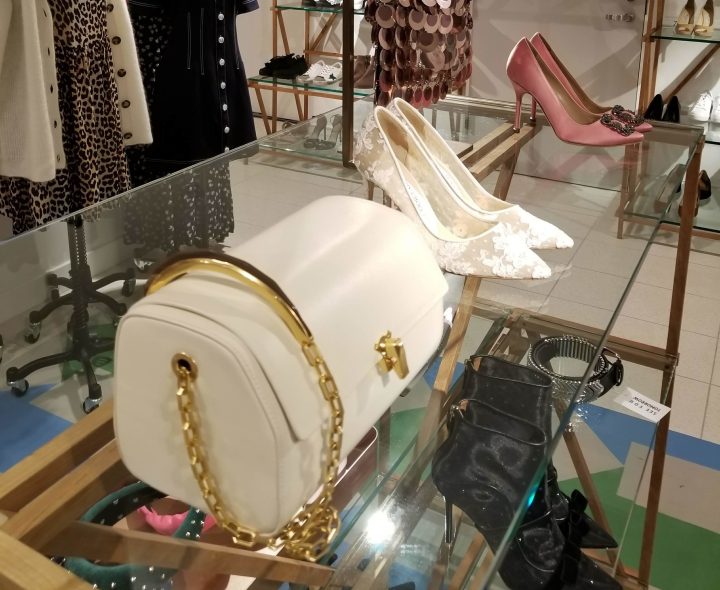
Why so many people are shopping secondhand

On the second floor of Nordstrom’s flagship store in Manhattan, a couple blocks from Central Park, the company is running an experiment.
It’s selling used clothes.
To be clear, they are designer clothes. When I visited, I spotted a white T-shirt that cost $91, a pair of pink satin Manolo Blahnik heels for $618, and even baby clothes, like a pink and gold Versace romper for $154.
![]()
![]()
![]()
(Marielle Segarra/Marketplace)
That’s where I met Juliette Laura, who’s 25, and had on a T-shirt that says “Pick Your Own Wildflowers.” She bought almost everything she’s wearing secondhand.
“My shoes I got on Depop,” she said. “Same with my corset, T-shirt and trench – they’re all from Depop. And then my bag is from the Real Real.”
Depop and the Real Real are resale websites.

“I typically shop secondhand, because it’s more sustainable and more ethical,” she said.
She can buy a T-shirt without feeling guilty about how many gallons of water or fuel went into making it.
In a recent survey by Raymond James, 15% of people who shop secondhand said they do it because it’s environmentally friendly.

And 65 percent said they do it to save money.
Dione Lehman, 33, lives in Newport News, Virginia. When we talked the other day, she was wearing a pink and blue plaid flannel shirt.
“I’m about my lumberjack lifestyle,” Lehman said.
The brand is American Eagle, but she got it at a local secondhand store.
“I would never pay 40 bucks for this shirt, but six bucks and we can talk,” she said.
Lehman has been going to thrift stores since she was a kid, but she buys used clothing a lot more since she discovered resale websites, like thredUP. She remembers her first purchase.
“I ordered a couple things, they came within three to five business days, and I was like, ‘this is what’s up,’ because I don’t even have to leave my house and I’m all about not leaving my house,” she said.
This could be one reason the resale market is growing. Thrift stores have been around for decades – but these websites brought the thrift store to your front door.
“It’s a lot easier, like you don’t have to search and you don’t have to physically get ready to go through racks and racks of old things to find potentially a treasure,” Lehman said.
Shopping secondhand can also allow people to buy designer clothes that are normally too expensive.
“You know, they want a brand affinity, they want a brand association, but they may not be able to afford the full price tag,” said Olivia Kim, vice president of creative projects at Nordstrom.
Secondhand clothing is now a $24 billion industry, according to the resale website thredUP. And retailers want in.
Macy’s, Madewell, and JCPenney are all selling used clothing now. And in a recent survey by BDO Consulting, three-quarters of retailers said they sell used goods or plan to start within the next 18 months.
There’s a lot happening in the world. Through it all, Marketplace is here for you.
You rely on Marketplace to break down the world’s events and tell you how it affects you in a fact-based, approachable way. We rely on your financial support to keep making that possible.
Your donation today powers the independent journalism that you rely on. For just $5/month, you can help sustain Marketplace so we can keep reporting on the things that matter to you.















